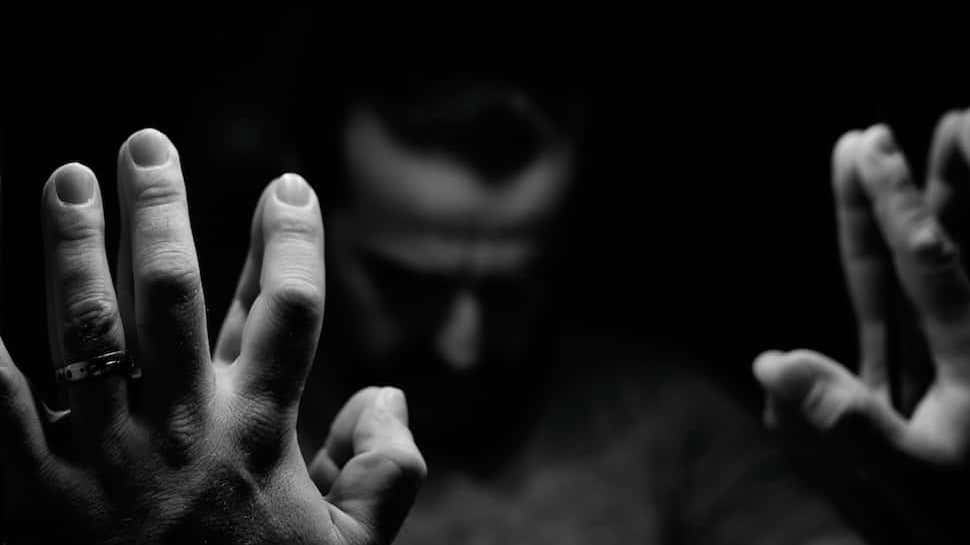
Can Major Depression Cause Psychosis?
Major depression is a serious mood disorder that causes a low mood, hopelessness, fatigue, and apathy, but in some cases it can also cause psychosis. Psychotic symptoms include delusions, hallucinations, and disordered thinking and speech. Psychosis is considered a mental health crisis and should be treated immediately. It raises the risk of suicide, self-harm, and harm to others. Hospitalization may be required, but once stable a patient with depression and psychosis can benefit from residential treatment and ongoing care.
Major depression is a serious mental illness, and psychosis is a set of symptoms and a mental state often related to mental illnesses. Depression is characterized by a sad, hopeless mood, lack of energy, loss of interest in activities, and other symptoms. Psychosis causes hallucinations, delusions, and disordered thinking and speaking.
There are other mental health conditions more likely to trigger episodes of psychosis, but major depression may cause these symptoms as well. A patient may be diagnosed with major depression with psychotic features if the mood disorder has ever caused a psychotic episode. Why some people experience psychosis with depression is not understood, but estimates suggest that anywhere between 14 and 50 percent of those diagnosed with major depression will have psychotic features. Immediate treatment is required for a psychotic episode, and residential treatment is often recommended.
What is Major Depression?
Major depression is a mental illness, often referred to as depression or clinical depression, that causes a persistent low mood and impairment in multiple areas of a person’s life. It is more than simply feeling down. When someone is diagnosed with depression it means they cannot shake the depressed mood; it persists for at least two weeks, causes a significant amount of distress, and impairs the ability to function normally. The common symptoms of major depression are:
- A low, depressed, hopeless mood that persists most days
- A loss of interest in activities that a person once enjoyed or engaged in
- Changes in eating habits that lead to unintentional weight loss or weight gain
- Insomnia or excessive sleeping
- Excessive fatigue nearly every day
- Agitation or decreased emotional affect
- Difficulty thinking, concentrating, or making decisions
- Feeling worthless, guilty, or ashamed
- Thinking of death or suicide
Everyone has a unique experience with depression, and there may be other symptoms as well, but with a diagnosis and dedicated treatment, someone with depression can find relief and restore normal function.
What is Psychosis?
Psychosis is a break with reality, a state of being out of touch with what is real. Psychosis is not a mental illness, but it is a mental state that can be caused by multiple mental illnesses. Examples of mental illnesses that commonly trigger episodes of psychosis include schizophrenia and bipolar disorder. Psychosis may also occur without the presence of a mental illness, triggered by drugs, medication, brain diseases or tumors, infections, seizures, or unknown causes. Symptoms of psychosis may include:
- Delusions, or false beliefs that persist in spite of evidence to the contrary, often based on fear, paranoia, and suspicion
- Hallucinations, seeing or hearing things that aren’t actually there
- Disordered thinking that jumps from one to another topic, mostly unrelated
- Difficulty concentrating or thinking clearly
- Disorganized and incoherent speech
- Poor self-awareness
- Inappropriate emotional responses, either excessive or flat
Psychosis may also be accompanied by depression, anxiety, difficulty sleeping, suicidal thoughts, social withdrawal, and poor motivation or low energy. A psychotic episode can be very serious and can be considered a mental health crisis that requires immediate treatment, or even hospitalization. In some cases, the person experiencing psychosis may be at risk of causing harm to him or herself, or to others.
Major Depression with Psychotic Features
When someone with depression experiences psychosis, it is called major depression with psychotic features. Psychosis is a specifier for depression. Other specifiers include mixed features, anxious distress, and seasonal patterns. This type of depression is sometimes also called psychotic depression. It is considered very serious and should be addressed immediately by mental health professionals.
The psychotic features specifier of major depression may be one of two types: mood-congruent and incongruent features. Mood-congruent psychotic features are symptoms of psychosis that are consistent with depressive symptoms. The content of delusions or hallucinations is related to depression, sadness, shame, and other emotions typical with depression. Mood-incongruent psychosis causes symptoms unrelated to a depressed mood. Some people may experience both types of features.
Psychotic depression is considered serious, because the symptoms are usually extremely distressing to the person experiencing them. They increase the risk that the person will attempt suicide or cause some other type of self-harm. In some cases the psychotic symptoms may even cause a person to become violent or aggressive toward others.
Diagnosing Psychotic Depression
Diagnosing depression with psychotic features can be challenging for mental health professionals. Depression is diagnosed according to official criteria, but it may not always be clear to someone evaluating a patient that they are also experiencing delusions, hallucinations, or other psychotic symptoms. For instance, a patient may have a delusion that their partner is leaving. This could very well be true, and a therapist or psychiatrist may have no reason to believe it is a delusion. Additionally, a patient may have symptoms they are afraid to share with a therapist.
Because it isn’t always easy to see psychotic features in a patient, and because recognizing and treating them is so important, it can help to have a family member or partner attend sessions or a mental health evaluation. Experts in psychotic depression suggest that this simple step can help diagnose more cases of psychosis triggered by major depression.
What Causes Psychosis in Depression?
There is no definite cause or explanation for why some people experience psychosis with depression while others do not. Family history and genetics may play a role. Another risk factor may be experiencing an extremely stressful life event prior to the psychosis: divorce, loss of a loved one, or being diagnosed with a serious illness, for instance. Childhood trauma, such as physical or sexual abuse, may also be a risk factor for psychotic episodes.
Treating Depression with Psychosis
Psychosis, with or without depression, should be treated as a mental health emergency. There are a few ways to treat it, but most patients benefit from a temporary stay in a residential facility where they can be kept safe and stabilized. Once the patient is stabilized, ongoing treatment can be provided in a setting that is calm, safe, and that allows for complete focus on therapy and getting well.
Medication is one element of treating psychotic depression. A patient may already be on antidepressants, but adding antipsychotic medications can help relieve the psychosis symptoms. Some combinations of antidepressants with antipsychotics used to treat depression with psychosis include:
- Venlafaxine (Effexor) with quetiapine (Seroquel)
- Sertraline (Zoloft) with olanzapine (Zyprexa)
- Fluoxetine (Prozac) with olanzapine (Zyprexa)
Research has found that these combinations are much more effective than giving a patient either an antidepressant or an antipsychotic alone. These are newer medications of these types, and while older ones may be used, these are generally effective and cause fewer side effects.
Another important type of treatment that may be used for psychotic depression is electroconvulsive therapy, or ECT. Research into the effectiveness of ECT is more limited but suggests that it may be as effective as medication. One review of studies found that the response rate by patients was high, at 88 percent, and that ECT used early could shorten the length of stay for a patient in treatment.
ECT is a safe type of therapy that uses electrical currents sent to the brain. It produces a mild seizure that changes levels of neurotransmitters, the chemicals in the brain implicated in mood disorders and psychosis. ECT should be administered only by trained professionals, typically by a psychiatrist or other medical doctor in a hospital setting.
Once a patient with psychotic depression is stabilized, a long-term stay in residential therapy can provide monitoring, safety, and behavioral therapies for ongoing care. A residential facility can also provide the opportunity to work with a patient’s family, group support and therapy, alternative therapies, and plans for lifestyle changes and life after treatment to help a patient manage his or her mental illness.
The prognosis for someone with depression who experiences psychosis varies depending on the severity of the illness, how quickly treatment is administered, and the quality of the treatment. For patients who receive care right away and get professional, residential treatment, the outlook is positive. Ongoing care and keeping up with treatments is essential for a good outcome. Depression is a chronic illness that may return, and one episode of psychosis means that a person may have additional episodes. Commitment to ongoing treatment can minimize or prevent these relapses.
https://medlineplus.gov/ency/article/001553.htm
https://www.nami.org/earlypsychosis
https://images.pearsonclinical.com/images/assets/basc-3/basc3resources/DSM5_DiagnosticCriteria_MajorDepressiveDisorder.pdf






